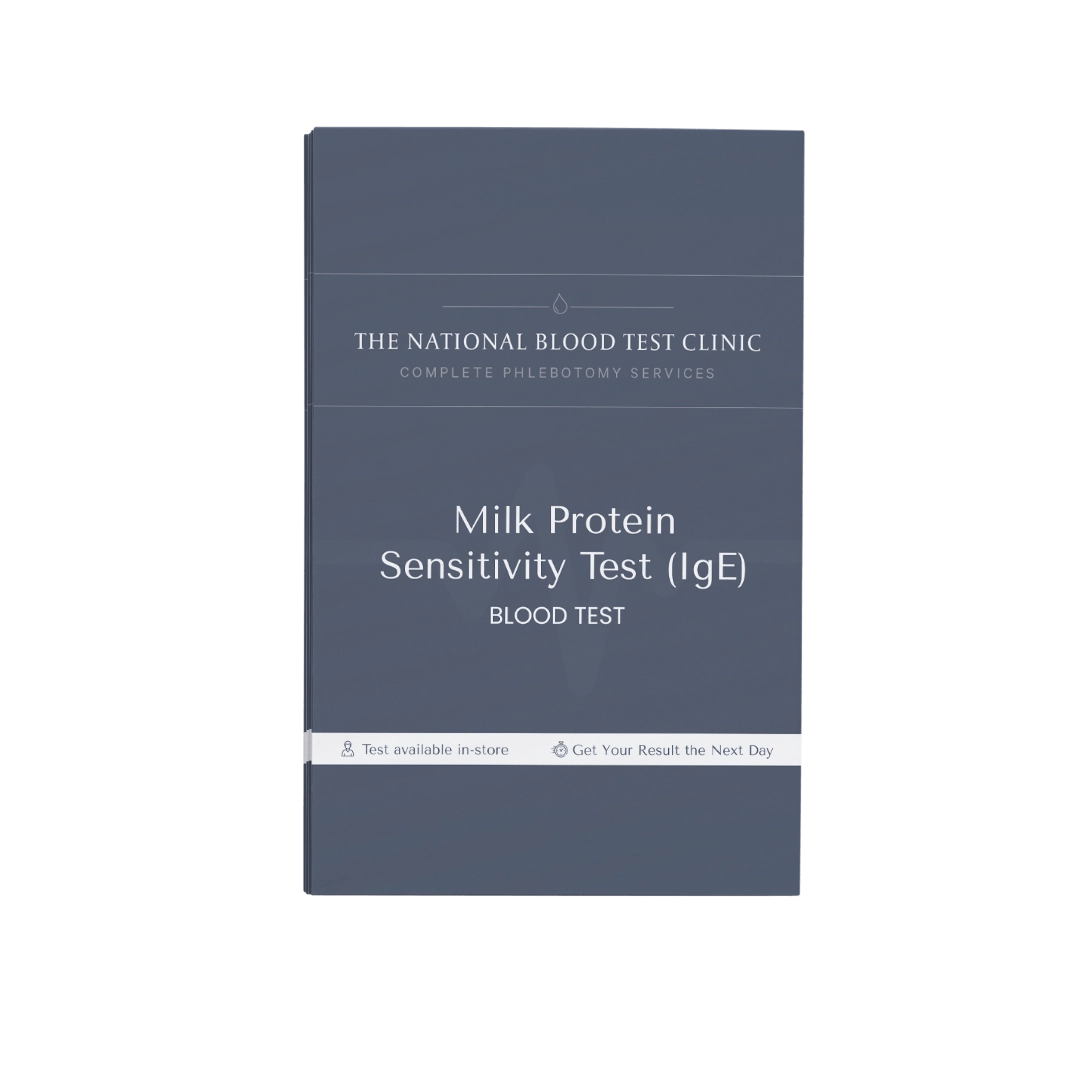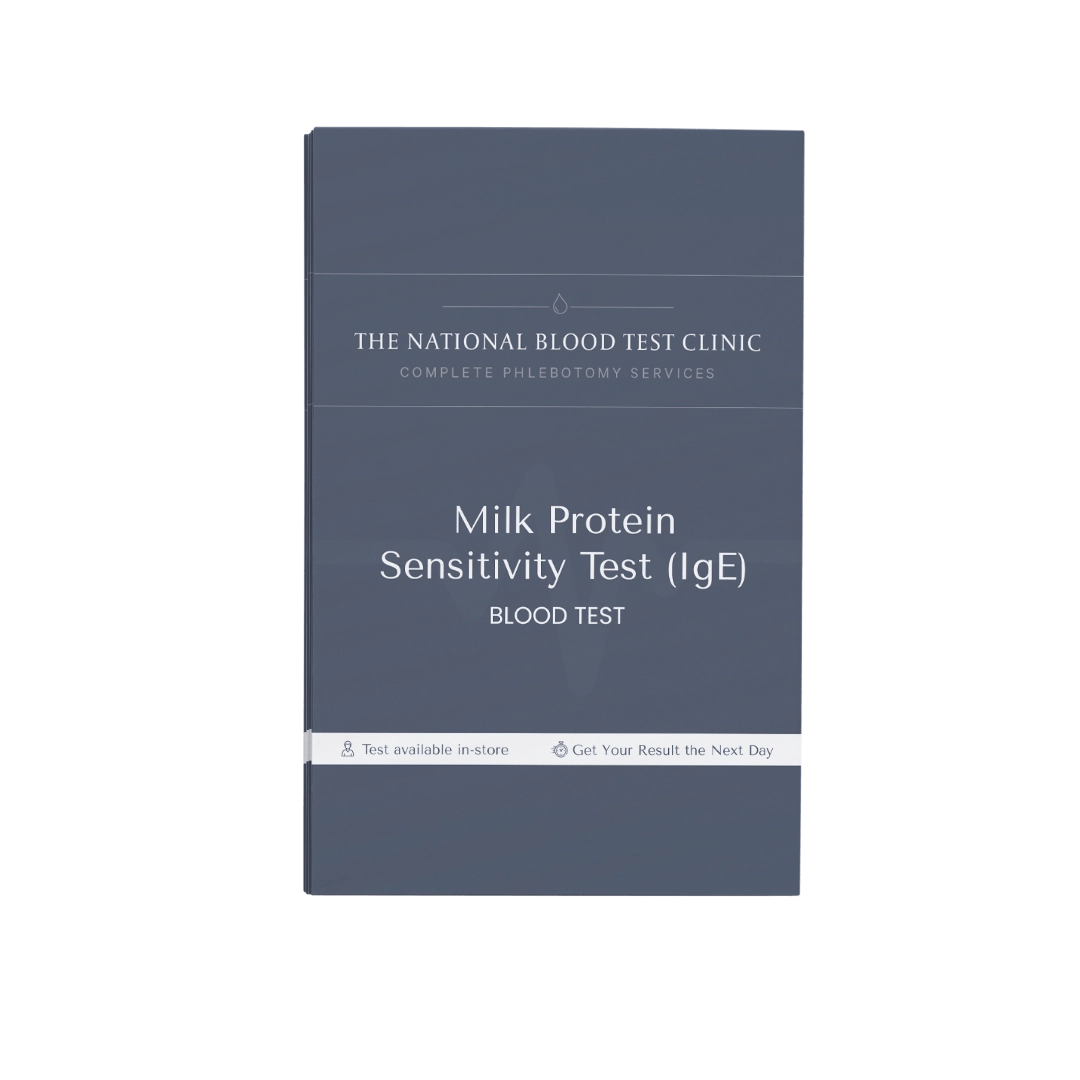My Store
Milk Protein Sensitivity Test (IgE) - Cow, Goat, Sheep Milk Allergy
Milk Protein Sensitivity Test (IgE) - Cow, Goat, Sheep Milk Allergy
SKU:ALL12
Reactions such as bloating, skin rashes, breathing difficulties, or digestive discomfort after consuming milk may point to a milk protein allergy. The Milk, especially Cow’s Milk Proteins Allergy Panel (IgE) checks for allergic responses to key proteins in cow’s milk as well as other animal milks, providing clarity on whether symptoms are triggered by dairy consumption.
Why Milk Protein Sensitivity Test (IgE) Matters?
Milk allergies are among the most common food allergies, especially in children, but they can persist into adulthood. Identifying the exact protein causing the reaction helps in managing diet safely, avoiding hidden dairy sources, and preventing both mild and severe allergic responses.
What Gets Assessed?
Mild to severe Milk protein allergy and sensitivities symptoms for:
- Cow’s milk
- Alpha lactalbumin
- Beta lactoglobulin
- Casein
- Bovine albumin
- Goat’s milk
- Sheep’s milk
- Mare’s milk
Turnaround Time
- 7 Days
100 in stock
Visit a partner clinic (+£50)
Once you've ordered your test, look out for an email from our phlebotomy partners containing information and a link to book your appointment. We'll send you everything the clinic will need to complete the sample and post it back to our labs.
Organise a nurse yourself
If none of the above options work for you, you can arrange your own medical professional to collect your sample. There is no additional charge for this. Once you've ordered your test, we'll send you everything you and your chosen medical professional will need to collect a sample and post it back to our labs.
Couldn't load pickup availability
Enter Your Details


Visit a partner clinic (+£50)
Once you've ordered your test, look out for an email from our phlebotomy partners containing information and a link to book your appointment. We'll send you everything the clinic will need to complete the sample and post it back to our labs.
Organise a Nurse Yourself
If none of the above options work for you, you can arrange your own medical professional to collect your sample. There is no additional charge for this. Once you've ordered your test, we'll send you everything you and your chosen medical professional will need to collect a sample and post it back to our labs.
How Our Test Works
-

Place Your Order
Place your order online and receive a test kit delivered to your home. You’ll need to bring this kit with you to your scheduled appointment at one of our partner blood collection clinics.
-

Attend Your Appointment
At your chosen clinic, a trained nurse or phlebotomist will collect your blood sample using the kit you bring. If a sample collection courier is not available at the site, you’ll be asked to take the sealed sample with you and post it using the prepaid packaging provided.
-

Receive Your Results
Once your results are ready, you’ll receive an email notification to log in and view them securely via your private portal. Please note: venous blood test results are not automatically reviewed by a doctor. We recommend booking a consultation with a qualified clinician to help you interpret and understand your results fully.
FAQs
Who should consider this test?
This test is recommended for individuals experiencing allergic symptoms such as skin rashes, hives, digestive problems, wheezing, or swelling after consuming milk or dairy products.
How is the test performed?
A venous blood sample is taken to measure IgE antibody responses against cow’s milk and specific milk proteins.
Which allergens are covered in this panel?
The panel includes common milk proteins such as casein, alpha-lactalbumin, and beta-lactoglobulin, which are frequent triggers of cow’s milk allergy.
What do the results indicate?
Results show the level of IgE antibodies to milk and its proteins, helping identify whether the symptoms are linked to cow’s milk allergy and how severe the reaction may be.
How can this test help in daily life?
By confirming milk protein allergies, individuals can adjust their diet, avoid triggers, choose safe alternatives, and manage symptoms more effectively.
Subscribe to our emails
Be the first to know about new collections and exclusive offers.





